Lead Investigators
The Figuring the Enemy project is headed by two lead investigators from Trinity College Theological School (University of Divinity)
Rev Dr Christopher A. Porter
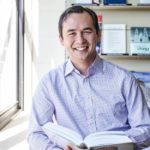
Chris Porter leads the Socio-Cognitive approaches to enmity stream. Having previous studied Psychology at the Australian National University and worked as a research fellow at the University of Adelaide he naturally brings an interdisciplinary focus to his work within the biblical studies discipline. Drawing from a Social Identity approach he examines biblical literature in its social context with an eye to its socio-cognitive implications for individual and group behaviour. Rev Dr Porter is currently working on a monograph tracing the use of Johannine Christology in theological debates within the early church (Cascade), an interdisciplinary introduction to Social Identity theory, and a social identity informed work on ecclesiological leadership.
Dr Scott A. Kirkland
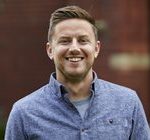
Scott Kirkland leads the Political-Theological approaches stream. From his prior research he draws on the political, philosophical and theological approaches of key thinkers in German language Jewish thought, especially the persistence of anti-semitic logics in present state formations. He particularly focuses upon the forms of messianism emergent in Franz Kafka, Walter Benjamin, Franz Rosenzweig, and Hannah Arendt which are deployed in order to interrogate the ways in which the original parting of the ways between Christianity and Judaism. This offers opportunities to articulate the formation of intra- and extra-mural conflicts and animus within religious environments. Dr Kirkland is currently working on a volume investigating a political theology to figuring the enemy and extended research on Kafka, Arendt, and Benjamin.
Co-Investigators
The Figuring the Enemy project is ably supported by a wide variety of co-investigators from a variety of institutions
Rev Dr Mark Lindsay (Trinity College Theological School)
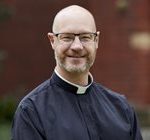
Mark Lindsay is an historical theologian, with over 20 years of experience teaching, researching, and providing senior academic leadership in Australian and overseas universities. His specific areas of interest are Barthian and post-Holocaust theologies, Patristic and modern European Church History, and Anglican Studies. He is a priest in the Anglican Diocese of Melbourne. Rev Dr Linsday is collaborating on patterns of Jewish-Christian relations with eminent University of Toronto Professor David Novak, including a public engagement event and research over the role of Markus Barth in mid-century Jewish-Christian relations
Dr Elizabeth E. Shively (University of St Andrews, School of Divinity)
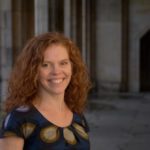
Elizabeth Shively is a New Testament scholar who uses ancient and modern literary theory to study the synoptic gospels (especially Mark) in their initial and later cultural contexts. She is particularly interested in the gospels’ use of Israel’s scripture and Jewish apocalyptic language and symbols. She looks particularly at how the gospels incorporate and build symbolic worlds, that is, paradigms for interpreting what their audiences perceive about the world, human beings, and God. To this end, she recruits cognitive disciplines to help account for how and why people use texts in social contexts, and how texts function to construct social identity. Dr Shively is preparing a monograph on how the genre(s) of Mark function in the textual construction of early Christian identity. In the current project, she seeks to extend the contemporary relevance of her work through the integration of socio-cognitive and political-theological methodologies.
Dr Kenneth Mavor (University of St Andrews, School of Psychology)
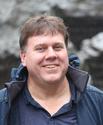
Ken Mavor’s research interests revolve around the fluid and complex nature of our personal and social self-categories and identities. This interest covers a range of levels of analysis including the fundamental cognitive processes of categorisation in social perception, phenomena such as attribution, homogeneity, entitativity, self-complexity, the social categorisation of faces and the multi-faceted nature of social identities. These core ideas have been explored in several specific contexts including: collective action and social change; religious and political identities and contested social attitudes; self-structure effects on resilience and well-being; and discipline-based social identities and learning approaches in education.
Dr David Newheiser (Australian Catholic University, Religion and Theology)
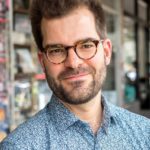
David Newheiser’s research addresses ethical and political questions in light of Christian thought and continental philosophy. He particularly interested in the political significance of practices of self-critique such as deconstruction and negative theology. I argue that hope sustains commitments that remain vulnerable to disappointment – whether those commitments are religious, political, or interpersonal. In my view, because the discipline of hope is shared by believers and unbelievers alike, its persistence indicates that faith has a future in a secular age.
Dr Janice McRandal (The Cooperative)
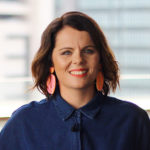
Janice McRandal is a leading contemporary feminist theologian, publishing at the intersections of systematic and political theology, the director of The Cooperative, and an honorary researcher at the University of Divinity.

